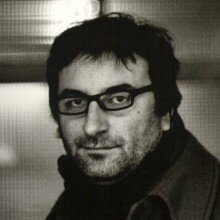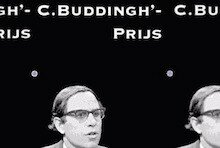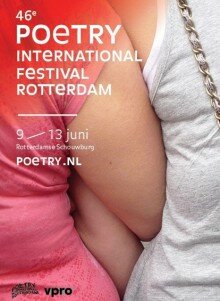Nederlands ►

Yanko González (Santiago de Chile, 1971) is a poet, professor of Social and Cultural Anthropology and the Dean of the Faculty of Arts and Philosophy at Austral de Chile University (Valdivia).
González is a sharp, merciless observer, and this is perhaps the main reason the boundary between art and science, and more specifically between poetry and anthropology, sometimes seems porous in his poetry. Metales Pesados (1998) can be read as a poetic account of ethnographic research into marginalized youth groups, which the author conducted in the late 1980s and early 1990s. At the same time it is a critical (self-)reflection on both the theory and practice of anthropology as an academic discipline.
In his second collection, Alto Volta (2007), González used the former French colony of Haute Volta in West Africa as an imaginary operating table, dissecting a revealing collection of xenophobic and racist discourses and other languages of exclusion. One example is that of a random Chilean women, who, when addressed by her cleaner or nanny as Mrs. Carmen, is oblivious to the fact that her ‘china’(1) feels insulted when she snaps back: ‘don’t call me madam!/ call me Carmen […]/ but not “cam-men” the way you do.’
A salient detail for Dutch readers: the name Pim Fortuyn appears in the title of one of the poems alongside that of Ignacy Domeyko, a Polish geologist who was awarded Chilean nationality in 1848 in recognition of his services to the country. By juxtaposing their names in ‘Domeyko & Pim Fortuyn’, they become a symbol of the two opposing poles in the representation of immigration: immigration as the importation of knowledge and wealth in the first case, and, in the second, as an invasion of backwardness and poverty.
González’ most recent collection, Elabuga (2011), takes its name from the Russian town of Elebuga where poet Marina Tsvetaeva committed suicide in 1941. She hung herself, and the work is dedicated to that macabre deed – suicide by hanging. However, González reads a form of resistance into it. In one interview, echoing Thomas Bernhard, he calls it a way of ‘correcting’ life – but not so much individual life, as social and civic life.
This last work, containing just 14 poems, is significantly slimmer than previous books, but no less impressive for it: it was published as a large format book, and the end papers contain obituaries of its author, written by poet friends, against the backdrop of a grey concrete wall, printed in colour. Bizarre? Rather. But it also demonstrates the cutting humour Yanko González’s collection is peppered with, and the unique way he turns the social into something personal.
Bibliography
Poetry
Metales Pesados, Ediciones El Kultrún, Valdivia, 1998
Alto Volta, Ediciones El Kultrún, Valdivia, 2007
Me tradujo González, Ediciones Vox, Bahía Blanca, 2008 (anthology)
Elabuga, Ediciones El Kultrún, Valdivia, 2011
Non-fiction
Héroes civiles & santos laicos: palabra y periferia : trece entrevistas a escritores del sur de Chile, Ediciones Barba de Palo, Valdivia, 1999
Anthologies
Voz sero. Antología poesía joven, Ediciones Barba de Palo, Valdivia, 1994
Carne Fresca. Poesía Chilena Reciente (with Pedro Araya), Ediciones Desierto, San Luis Potosí, 2002
Zurdos. Última poesía latinoamericana (with Pedro Araya), Ediciones Paradiso, Buenos Aires, 2004 / Bartleby Editores, Madrid, 2005
Translations
Charles Bukowski, La Muerte Se Está Fumando Mis Cigarros (with Pedro Araya), Ediciones Bajo el Volcán, Santiago de Chile, 1996






